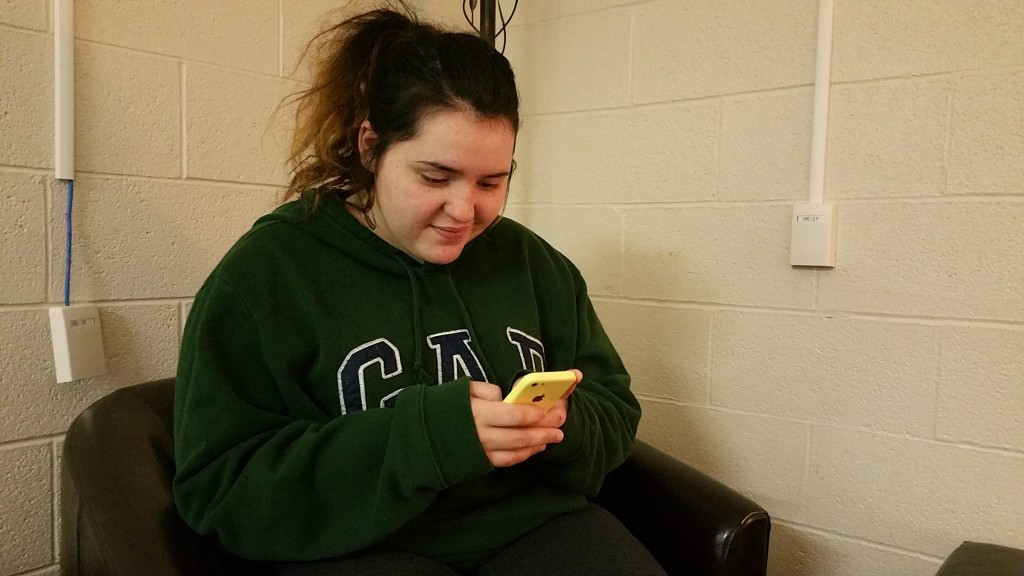
Emily LaFleur uses her cellphone to get breaking news from social media and from family. Photo by Candice-Rose Gagnon
BELLEVILLE – A deaf Loyalist student said she welcomes CBC’s pilot project interpreting some radio documentaries into American sign language but Emily LaFleur said she thinks it’s not enough.
At the beginning of Februaray, CBC announced it will begin to transcribe all radio transcripts from the daily program The Current into text, as well as interpret some radio documentaries into American sign language videos.
LaFleur, a 23-year-old photojournalism student, said she wants to receive her news at the same time as everyone else.
“(Hearing) people get informed when they drive, at work or at a restaurant. As (a deaf person, I) have to check (the) internet or go home,” said LaFleur via Facebook.
She likes the idea of CBC’s accessibility but thinks there is a better way to get the message across to deaf Canadians.
“It would be great if we get text messages or something on our cell phone, so we will know of any emergency information like weather or accidents or anything.”
She gets her news reading the newspaper and reading stories on the internet, particularly Facebook. She does use television to consume the news as well, but she says using closed captioning is limited.
“(Television stations) do provide great closed-captioning but not when they announce the news live. The closed captioning is usually horrible,” she said.
CBC producer Tanya Springer says the pilot project to reach the deaf and hard-of-hearing community has been in the works for over a year.
She and two others applied to the Broadcasting Accessibility Fund, and the project was accepted for funding.
“We felt that The Current is a radio program that is most relevant to the most number of Canadians. In terms of international issues, also domestic issues, it covers everything. Health, security, justice, social issues, it’s everything.”
Springer says the project isn’t just benefiting the hard of hearing. She said it is also useful for post-secondary students doing research, new Canadians learning English, or those in rural Canada who have slower internet access.
“A woman wrote in and had said that she does not have the time to listen,” Springer said. “She also doesn’t have great bandwidth on her computer, and so she will print the transcripts and read them or read them on her screen in lieu of listening. It goes to show the versatility of it.”
Gary Wheeler, spokesperson for the Ontario Ministry of Education, said via email that he also welcomes the idea.
“Our government believes that every student in Ontario deserves access to a high-quality learning education, and the right to a supportive learning environment. The ministry supports initiatives that make sources of information available to Ontario’s students.”
The CBC will continue to run the pilot project for at least six months to test for feasibility and need.
 Print This Post
Print This Post






